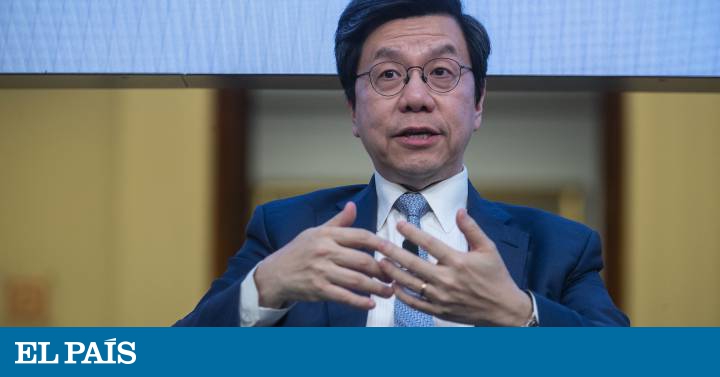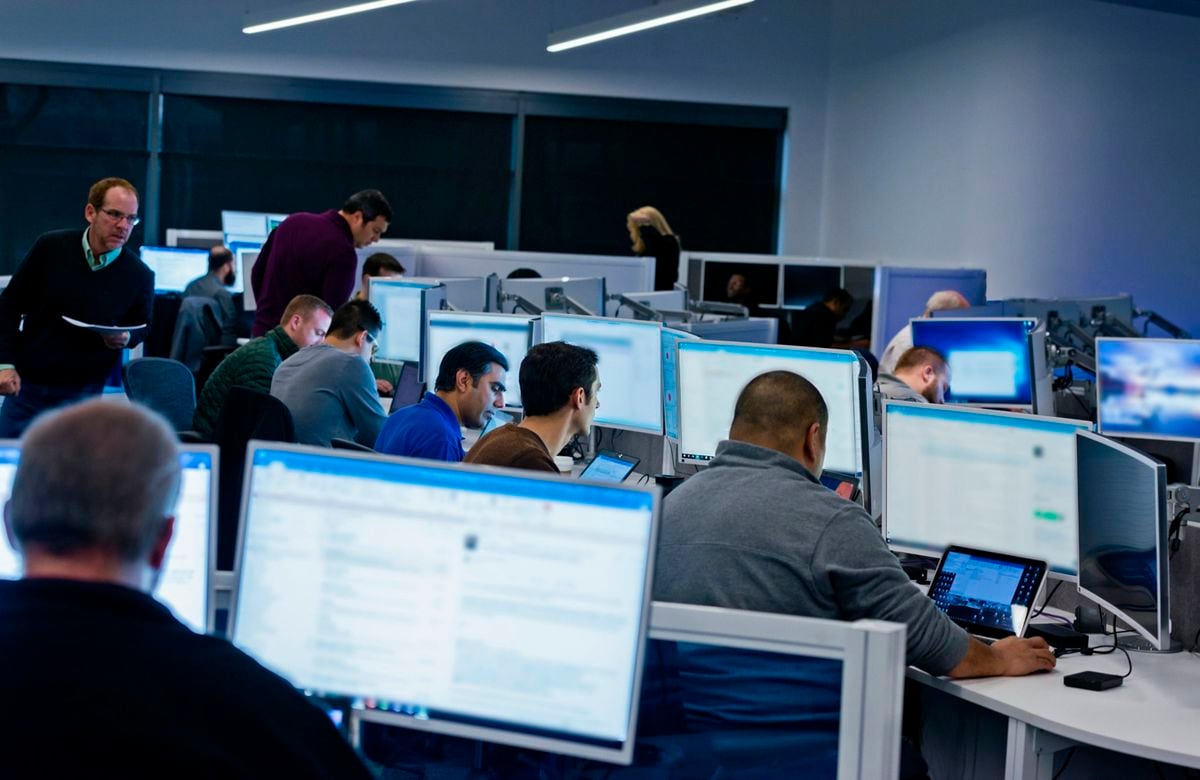Kai-Fu Lee believes a lot in China. He tells a day in 1999 that he went to give a talk about voice and image recognition to engineering students at a remote university in Hefei, in central China. The room was very crowded, kids on stage and on the other side of the windows. The act was extended and Lee left the premises at 11 pm. At that time, lots of students left their homes to sit on the curbs of the street. At 11 they turned off all the lights and the young people wanted to continue studying in the light of street lamps.
"I watched hundreds of the brightest minds in China's engineering huddle in the soft yellow glow," writes Lee in Superpowers of Artificial Intelligence (Deusto), his latest book now translated into Spanish. Today all these young people populate the Chinese industry. Lee is fixed, as he says, on the good of China. For the bad there are the means. Although the bad thing is the repression in Hong Kong.
Lee was born in Taiwan, moved to the United States to study. He investigated image and voice recognition. He then worked at Apple, Microsoft and Google, where he directed his Chinese project until it closed in 2009. That year he founded a venture capital firm, Sinovation Ventures, which invests in artificial intelligence companies in China. BBVA, for example, in 2018 invested 50 million euros in that fund. During his stay in Spain, Lee has met with the president of the bank, Carlos Torres.
If US companies work in China, they must assume their censorship laws
As a good investor in them, Lee believes that Chinese companies will sweep away artificial intelligence. There are at least four factors that determine its possible success: one, the lack of red lines with privacy and data usage ("China is the Saudi Arabia of data," he writes); two, founders raised in the law of the competitive jungle (where copying or cheating is legitimate); three, a permissive labor legislation and many facilities from the Government for technology companies and, four, the Chinese leap in many technologies (for example, of metallic money to pay with the mobile without going through the cards).
In this brief interview, Lee defends the Chinese model, although he admits that he doesn't have to be the best. Lee's argument is similar to that of the Chinese government: each country sets its rules. Thus, if Chinese companies work in Europe they will respect the European data regulation. And if American companies work in China, they must assume their censorship laws. The last attempt, the Google Dragonfly project, which aspired to return to China and give the wrong results on for example Tiananmen, ended in failure.
In his book, Lee describes the early years of the 21st century in China with a quote from a contestant on a dating program: "I'd rather cry in the back seat of a BMW than smile on the back of a bicycle," he said. . 21st-century China has so far had different priorities than European ones. Lee bets on them.
Question. "People in China easily accept that their voices, faces and past purchases are digitized and preserved," he writes. Why?
Reply. First for the benefits of trading the data. European tradition highly values personal property and privacy. The Chinese tradition is more collectivist. Do people value privacy in China? Clear. Is it the most fundamental right as in Europe? No. If you say, look, we're going to put cameras to capture people's faces just for security and catch the bad guys. The crime will come down. In return, the government will have a database with all the videos. People will say yes.
Q. If China wants to be a global power with these budgets, it won't be easy.
R. There will be different cultural segments in the world. If any company wants to participate in Europe, it will have to play with the local rules. Some Chinese companies may decide to do so. Most likely, Europe remains dominated by American software. You can say that it is by similar culture, similar languages or by the force of habit. Chinese software is more likely to dominate developing countries. We see it. TikTok or Alipay [Aliexpress payment] are very successful in India, Latin America or the Middle East.
Q. In the book, it gives few options to European industry. It barely appears. As if it meant less data, worse industry.
R. For now it is like that. But there are variants. For example if someone invents an algorithm that is not so sensitive to the amount of data and works well with less. If that happens, the advantage of the data disappears. In the European regulation it is foreseen that your data can be returned to people. Or that there are apps that work by treating people as individual users.
Q. You don't seem to see these European roads possible.
A. Well, it is a very unlikely path. So unlikely that I don't even quote it in my book. I answer because it doesn't seem impossible, but I don't think it's likely.
Q. China has other problems. Toutiao, a viral headline app had to apologize for harming "socialist values."
A. Everything has its ups and downs. Facebook and Google also looked like wonderful tools and now we see problems. You have to look at the good and the bad in each situation. I think the media covers a lot of the bad things about China, so my book wants to balance and look for the good. But about the Government, I would say that intervention in technology companies has been minimal.
Q. A protester in Hong Kong may not see it the same.
A. But that refers to a matter of sovereignty and about which government is entitled to what data stored in a country. I am pretty sure that Chinese companies that expand beyond their borders will have to follow the laws of those countries. When I ran Google China, if the government had hypothetically come and told me that they wanted the search pattern of a Chinese dissident living in the US, there would have been no way to give them that information because it was stored in the US. It was not accessible. So if in the future Chinese products are successful in Argentina or Spain, the jurisdiction will remain local. That is the way I think we are developing. You put Hong Kong as an example, but Hong Kong is part of China. So it is different.















